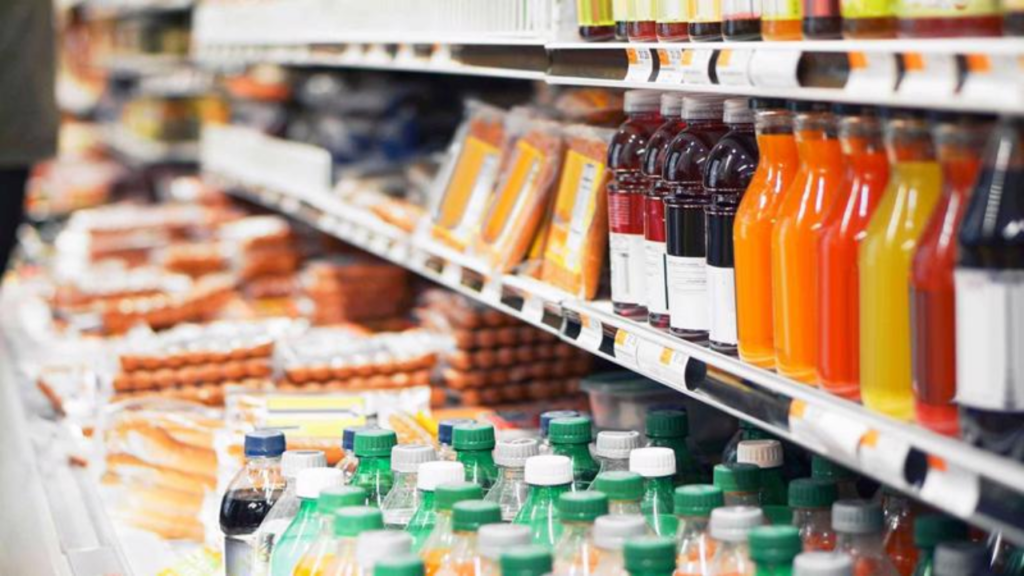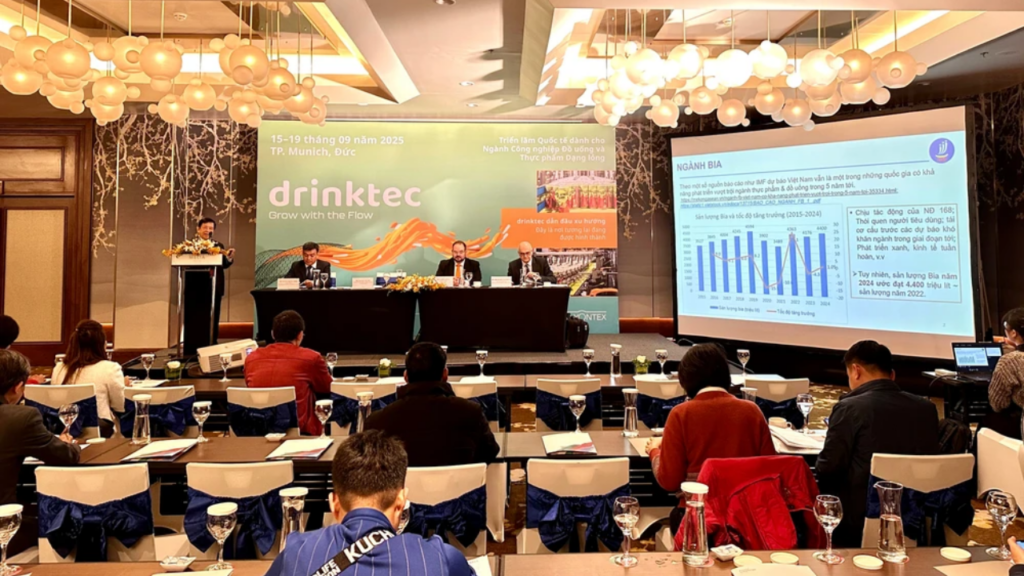Beverage Industry Must Keep Up with Trends for Sustainable Growth

Greenification Trends and Circular Economy
Consumers increasingly prioritize products with natural origins, low sugar, no sugar, and environmentally friendly attributes. This presents a significant challenge for beverage companies in Vietnam seeking sustainable development.
According to a report from the German Engineering Federation (VDMA) at the Drinktec 2025 press conference in Hanoi, Vietnam's non-alcoholic beverage market is growing rapidly. Rising income levels, a young population, and intense industry competition are driving this growth.
Vietnam – A Promising Beverage Market in Asia
Vietnam is currently among the top 10 largest beverage markets in Asia. Here are some key statistics highlighting the market's potential:

1. Total Consumption: In 2024, Vietnam's non-alcoholic beverage consumption reached nearly 6 billion liters, with a projected 28% increase by 2028.
Market Growth: The F&B sector in Vietnam is one of the most successful retail industries, with an average annual growth rate of 8.22% (Statista).
Consumer Trends: Increasing health awareness is driving demand for natural fruit juices, sugar-free coconut water, herbal teas, and functional beverages.
2. Competitive Advantage:
Vietnam has a young population, with 25% aged 16-30, leading to high beverage consumption.
A tropical climate boosts the demand for refreshing drinks.
Rising income levels result in greater spending on premium and healthy beverages.
3. Global Integration:
Vietnam ranks 8th among the largest beverage markets in Asia.
Participation in international trade agreements provides strong export opportunities for Vietnamese beverage companies.
Major international F&B brands are entering Vietnam, increasing competition but also fostering innovation in the domestic industry.
What Should Vietnamese Beverage Companies Do?
1. Innovate Formulations:
- Reduce sugar content or replace it with natural sweeteners.
- Develop functional drinks with added vitamins, minerals, probiotics, and antioxidants.
2. Optimize Packaging:
- Utilize recyclable and biodegradable materials to minimize environmental impact.
- Highlight keywords likeb" to attract health-conscious consumers.

3. Apply Advanced Production Technologies:
- Reduce water and energy consumption in manufacturing.
- Implement renewable energy sources in production facilities.
- Optimize supply chains to enhance efficiency and reduce carbon footprint.
4. Expand Distribution Channels:
- Strengthen online sales and e-commerce platforms.
- Collaborate with supermarkets, convenience stores, and international distributors to expand market reach.
- Leverage social media and digital marketing to engage younger consumers.
Nam Viet Group – A Pioneer in Green Beverage Trends
As a leading company in the beverage industry, Nam Viet Group is at the forefront of developing healthy products that cater to modern consumer demands. The company is committed to sustainability, innovation, and international quality standards. Some of its standout products include:
Coconut Water – Sugar-free, rich in natural minerals, and an excellent hydration choice.
100% Fruit Juice – Made from pure fruit, with no preservatives, no added sugar, and packed with natural vitamins.
Aloe Vera Drink – Naturally sweetened with fruit extracts
With a vision for sustainable growth, Nam Viet Group continuously innovates by applying modern production technologies, optimizing processes, and aligning with global beverage trends. The company's products are now exported to over 200 countries, showcasing Vietnam’s potential in the global beverage market.
Vietnam's beverage industry is poised for strong growth but also faces numerous challenges from evolving consumer trends and regulatory policies. Companies that stay ahead of the curve, innovate their products, and optimize production processes will dominate the market. Nam Viet Group, with its pioneering approach to natural beverages, is proving its market leadership both domestically and internationally.
